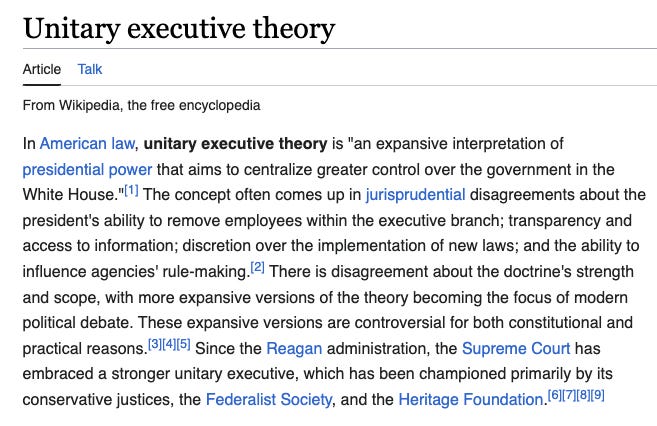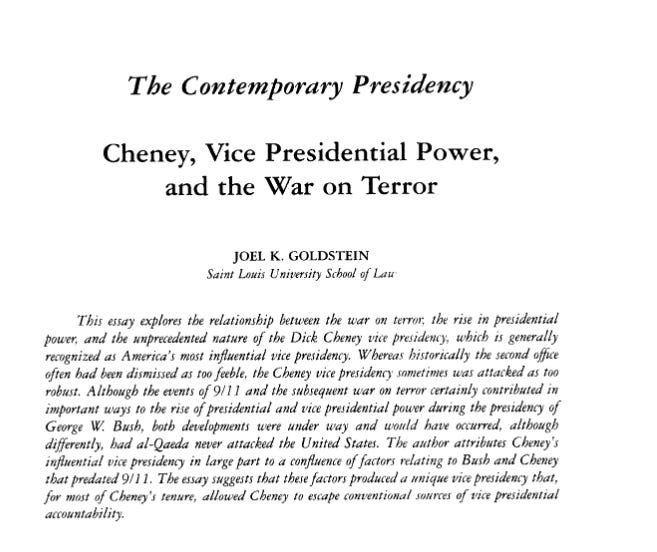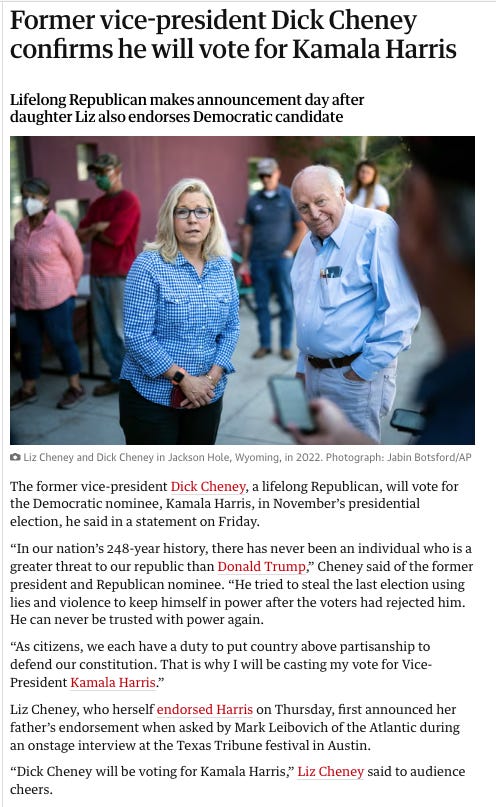Supporting Donald Trump is too much for Richard Cheney
The significance of the illiberal former Vice President now opposing the undemocratic former President
Back in the halcyon days of that golden age of when politics seemed kind of normal, there was no greater illiberal pantomime villain than Vice President Richard Cheney.
(Of course, halcyon days and golden ages never existed, for that is a trick of our memories and histories.)
*
Richard Cheney was - and perhaps still is - a believer in something that is called ‘unitary executive theory’. This is a bundle of ideas that even has its own Wikipedia page:
In effect: the doctrine is about there being few limits - or at least few meaningful limits - to the sheer executive power of the United States presidency - and vice presidency.
(Note the word ‘executive’ there - it does not necessarily mean trespassing on legislative and judicial powers, though it does mean limiting the scope of legislative and judicial powers.)
There are even academic articles about Richard Cheney and this approach:
Richard Cheney is about as far from being a liberal constitutionalist as one can imagine, at least in terms of theory and principle.
But.
Yesterday came the astonishing news, initially through his daughter (the brave and estimable) Elizabeth Cheney, that the former Vice President is not supporting the former President Donald Trump in the latter’s attempt at re-election and will instead be voting for Democtratic candidate (and current Vice President) Kamala Harris.
This has now been confirmed directly from Richard Cheney himself:
*
Of course: there is a distinction between what one does with power and how one gets that power.
One can believe in the widest executive powers for a President (and Vice President) once elected, but still (genuinely) believe in a democratic process so as to obtain those powers. Indeed, there is a conceptual connection in that the wide executive powers are (somehow) justified by the democratic mandate.
And if you look carefully at Richard Cheney’s reported remarks, his objection is primarily to Trump’s abuse of the election process, and not to the abuses of presidential power itself.
In effect: yes you can have those wide powers, but you need to obtain them properly.
*
Yet, this is still quite the turn-up.
Once upon a time, liberals worried about the wide powers of a Vice President Cheney - and of a President Bush.
And now, in turn, illiberals like Vice President Cheney are worried about the undemocratic pretensions of a President Trump.
This is an interesting and significant development.






One would hope that this is a bit of a the wheels are coming off moment